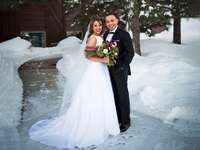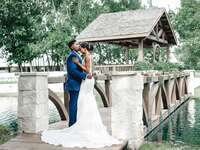Everything You Need to Know About How to Get Married in Minnesota
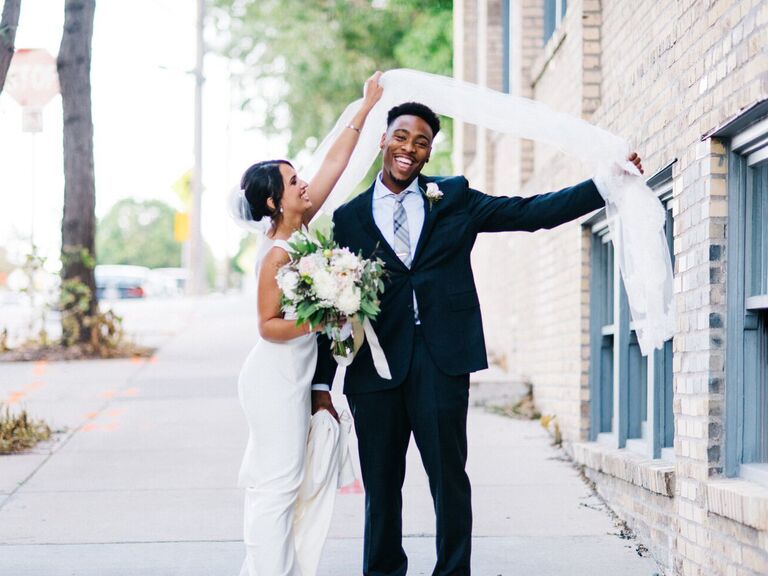

Located in the heartland of the United States, Minnesota promises a laid-back atmosphere, gorgeous views and a whopping dose of Midwestern hospitality. It's no surprise so many are eager to learn how to get married in Minnesota. Along with a multitude of venue options and the most delightful people to help put your day together, the state's four distinct seasons provide lots of variety.
"Couples can pick a season they like best and be assured that Mother Nature will come through with beautiful leaves in fall, snowy hills in winter, green grass and bountiful flowers in spring and summer," says Gretchen Culver, a Minnesota wedding planner and founder of Rocket Science Events. "Couples can tailor their wedding around the season they select."
Ahead, we're covering everything you need to know about getting married in MN, including all the fine print on Minnesota wedding laws, picture-perfect locales and pro tips on the best time to get married in Minnesota.
In this article:
- How to Get a Marriage License in Minnesota
- Notable Wedding Locations in Minnesota
- How to Plan a Wedding in Minnesota Step-by-Step
How to Get a Marriage License in Minnesota
You're well on your way to heading down the aisle, but if you want a legal marriage in Minnesota, you first have to pick up a marriage license. Fortunately, this is pretty simple to do!
Step one is completing a pre-application online that will help your appointment go smoothly. Both parties must be present in person to apply for their marriage license in Minnesota at the County Recorder's Office. If for some reason one of you can't make it, marriage license requirements in Minnesota say you must bring the correct notarized forms to move forward with the process.
Make sure to bring some form of identification—like a driver's license, certified copy of your birth certificate or state ID. The application also requires your social security number, current address, previous marriage information, legal name, past felony convictions and if you're seeking a name change.
You'll walk out of your marriage application appointment with a license in hand, and it's good for six months. Once married, marriage certificates must be filed with the county by your officiant within five days of the wedding ceremony.
FYI: You don't have to be a resident of the North Star State to get a Minnesota marriage license, and you can wed in any Minnesota county, no matter where you get your license.
Notable Wedding Locations in Minnesota
Your choices abound when it comes to Minnesota wedding venues and vendors. Whether you're planning on getting hitched in a scenic garden, in a romantic ballroom or along one of the state's many scenic waterfront locales, there's an option for everything.
Minneapolis / St. Paul (The Twin Cities)
They call Minneapolis and St. Paul the Twin Cities because of their close proximity and shared metro area. This is one of the most bustling areas of the state to get hitched, and it also provides a wide range of vendors and venues to choose from Culver notes.
"They are conveniently located to an international airport and the cultural heart of the state. Minneapolis has a lot of great urban warehouse spaces such as The Machine Shop and The Whim, and St. Paul has so many cool historic venues like The Saint Paul Hotel and the University Club," she says. "No matter what style of wedding you want, you are going to find a spot in either Minneapolis or St. Paul."
Duluth
Duluth, up north on the shore of Lake Superior, has a variety of venue styles from traditional to urban. "This small city has a lot to do—from dining to shopping—making it an ideal domestic destination wedding location," Culver tells us."There are loads of outdoor activities available as well, year-round. Couples can plan a whole weekend's worth of events for their guests to make their wedding extra special and fun."
She says that two of her favorite venues are the historic Glensheen Mansion and Greysolon Ballroom, and she also gives a double thumbs up to Bent Paddle Brewing Co. for its vibrant space and tasty beer.
Rochester
Known for its friendly atmosphere and beautiful parks, Rochester delivers a mix of both modern appeal and natural beauty. From gorgeous event centers to serene outdoor gardens, couples have a variety of options. Culver says, "Rochester is such a beautiful area for couples wanting an outdoor wedding. There are many wineries, vineyards and barn venues to choose from. My personal favorite is Willow Brooke Farm."
Stillwater
This idyllic riverside town is a top contender for couples dreaming of a romantic and intimate wedding. Known for its quaint, historic downtown and scenic views of the St. Croix River, Stillwater offers dazzling, one-of-a-kind venues like restored loft spaces, cozy inns and even paddleboat ceremonies on the river. Its cobblestone streets and iconic lift bridge also make for a picturesque backdrop.

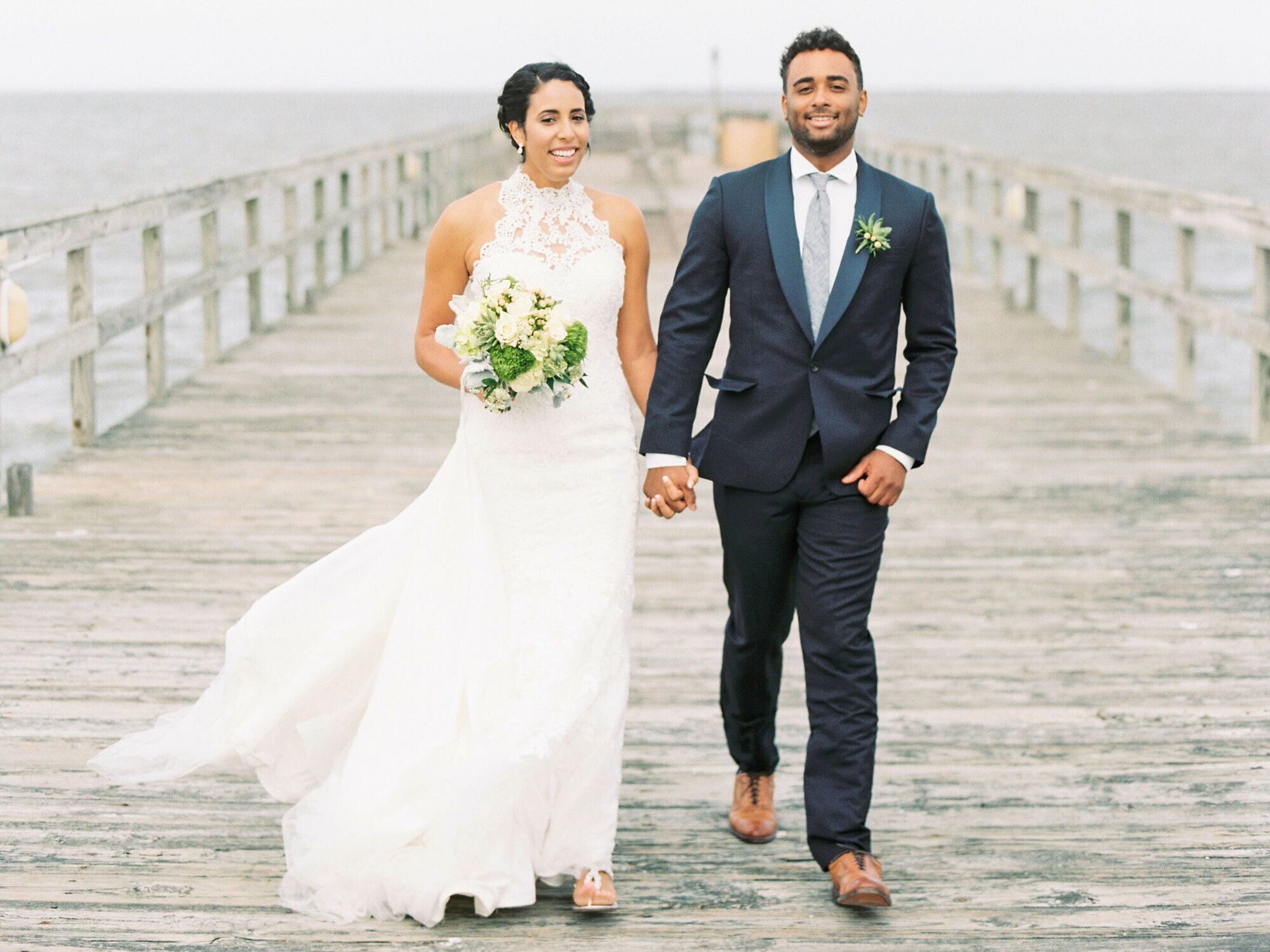
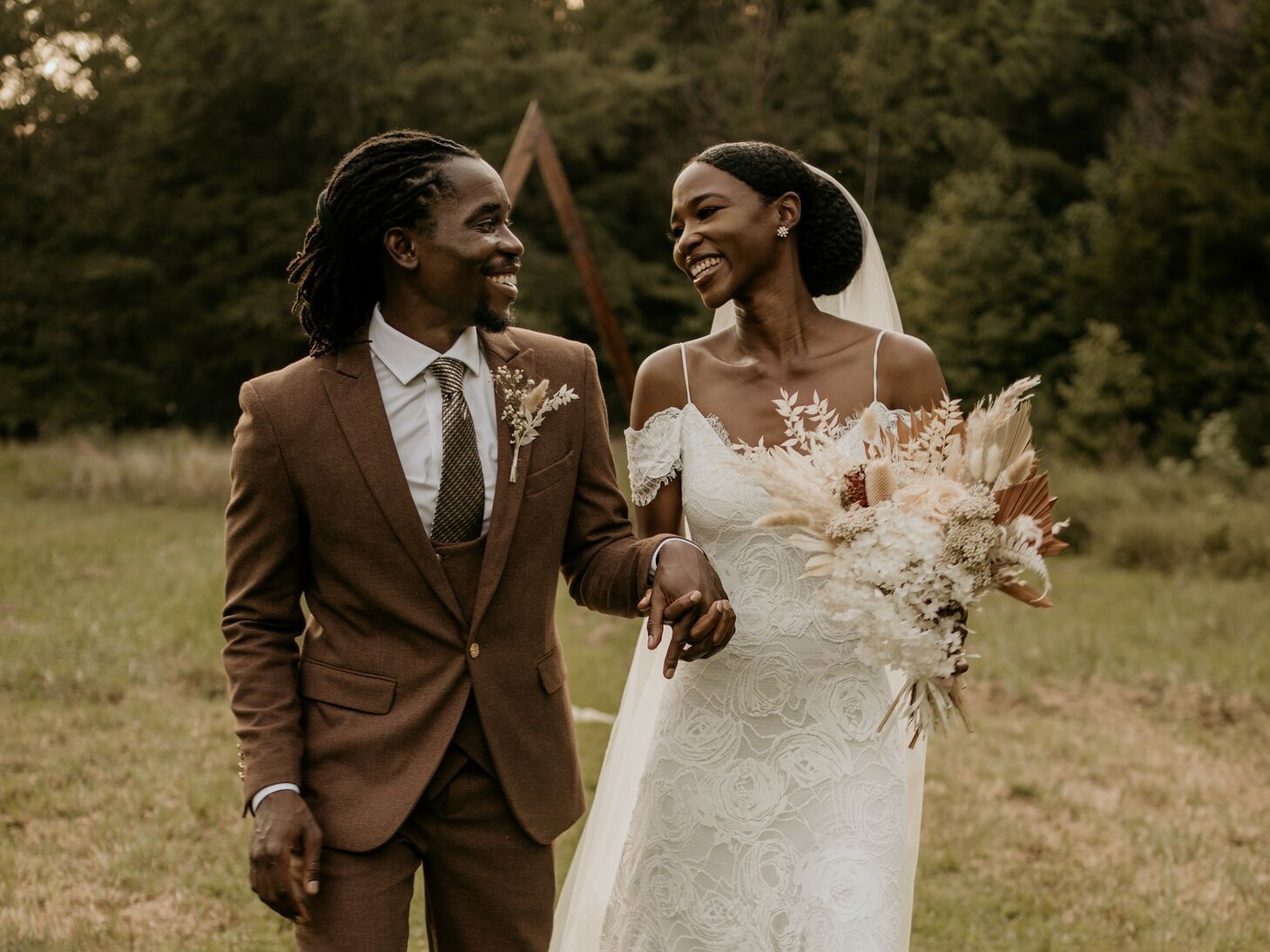
Brainerd Lakes Area
Minnesota isn't called the Land of 10,000 Lakes for no reason. The scenic waterfront venues abound here and the Brainerd Lakes area is hard to beat. With cozy cabins, rustic lodges and serene waterfront venues, it has all the makings of a nature-filled, rustic ceremony. Consider hosting a weekend celebration complete with boating, fishing or s'mores around the fire for an unforgettable guest experience.
How to Plan a Wedding in Minnesota Step-by-Step
From weather considerations to setting a budget, this simple guide on planning a wedding in Minnesota covers all the bases.
1. Set Your Budget
Getting married in Minnesota is an investment, but Culver says it's more economical than tying the knot in a city like New York City, Chicago or Los Angeles. "Your dollar goes further because costs are generally overall lower," she explains. "From my experience, the same wedding in Minneapolis would be one and a half times the cost in Chicago and two to three times more expensive in New York City."
For a firmer grasp on your budget, take advantage of The Knot Budget Advisor. This handy tool helps couples learn more about wedding costs in their specific marrying location based on data from real couples.
2. Choose a Venue
The best time to get married in Minnesota is typically from May to September when the weather is warm and the state's natural beauty really puts on a show. During this time, you can take advantage of outdoor venues, lush greenery and vibrant lakeside views.
Along with peak wedding season in Minnesota, the shoulder season is a great time to tie the knot, too. Fall weddings in September and early October are popular due to the stunning autumn foliage. If you're considering a winter wedding, Minnesota's snowy landscapes create a magical setting, but be prepared for colder temperatures and potential travel challenges.
3. Consider Local Events
Culver encourages couples to check out events happening during their wedding weekend before signing a contract with a venue. "Events like pride weekend, Art-A-Whirl and concerts at the stadiums have a huge impact on everything from hotel rooms to traffic," she notes. "Many of my clients love to get married during State Fair time so their guests can experience it, however, they do not host their wedding anywhere close to the fairgrounds."
4. Have a Weather Plan
Minnesota dazzles during the spring and summer, but it can throw in some weather curveballs any time of the year. This is particularly true in the spring, fall and winter.
"My number one piece of advice for couples getting married in Minnesota is to have a weather plan," Culver says. "Not just a rain plan, [but] a weather plan where you account for temperature, wind and natural disasters such as flooding. Weather affects all couples, not just ones who are getting married outside, and your entire day or weekend."
Mother Nature can be fickle so you need to be prepared. A wedding planner familiar with planning a wedding in Minnesota can help tremendously.
5. Hire Vendors a Year Out
It's not uncommon for couples planning a Minnesota wedding to start this process around a year from their wedding date, Culver says. "Booking your big ticket vendors—venue, photography, videography, catering and entertainment—first will ensure you get your top choices," she says. "If there is a vendor that is super important to you, like you've always wanted a certain floral designer or hairstylist, book them as soon as you can as well."
Vendors with the ability to do multiple weddings on one day, such as a rental company, can be reserved later. But keep in mind every vendor is first come first served so if you procrastinate you run the risk of losing out on your desired vendors. The Knot Vendor Marketplace can help you narrow down your options.
6. Provide Room Blocks
If you have guests traveling from out of town, Culver recommends setting up a couple of hotel room blocks at different price points close to your venue so it is easy for them to make travel arrangements. "People who are not from Minnesota can be confused at the proximity of the different cities," she says. "You don't want them making a hotel reservation in St. Paul for your wedding that is in Maple Grove." You can include all this information on your free The Knot wedding website.






